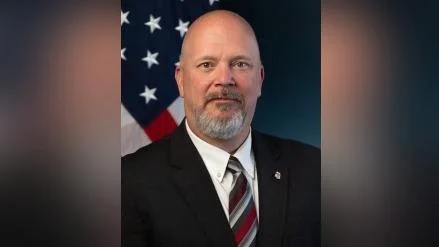Clinton J. Johnson U.S. Attorney | U.S. Attorney for the Northern District of Oklahoma
A Sand Springs man has been sentenced to 30 years in federal prison for the second degree murder of Tasha Shepard, whose body was found near a bus stop in Tulsa. U.S. District Judge John D. Russell handed down the sentence to Anthony Clay Russell, 32, who will also serve five years of supervised release after his imprisonment.
According to court documents, first responders were called on October 22, 2024, after reports of a woman lying on a sidewalk with blood coming from her head. Medical personnel determined that Tasha Shepard had died from a gunshot wound to the back of her head.
Surveillance footage showed a BMW pulling into a parking lot where Shepard exited the vehicle and walked away. The car then followed her before speeding away from the area where her body was later discovered.
Detectives found text messages between Russell and Shepard on her cellphone from the night of the shooting. The messages indicated that Russell had arranged to pay Shepard for sex and coordinated where he would pick her up.
When questioned by detectives, Russell initially denied being with Shepard but later admitted picking her up for sex when confronted with evidence. He told investigators he did not have money to pay her, which led Shepard to leave his car. Russell eventually admitted shooting at Shepard, claiming he only intended to scare her.
Further investigation uncovered additional surveillance showing both individuals together in the BMW shortly before the killing. Detectives searching Russell’s home located both the BMW and the firearm used in the crime.
Russell is identified as a citizen of the Osage Nation and will remain in custody until transferred to the U.S. Bureau of Prisons.
The case was investigated by the Tulsa Police Department and FBI and prosecuted by Assistant U.S. Attorneys Adam D. McConney and John Brasher.
This prosecution falls under Project Safe Neighborhoods (PSN), an initiative designed to reduce violent crime through collaboration among law enforcement agencies and community organizations. The program focuses on building trust within communities, supporting violence prevention efforts, setting targeted enforcement priorities, and measuring outcomes. More information about PSN can be found at https://www.justice.gov/psn.





